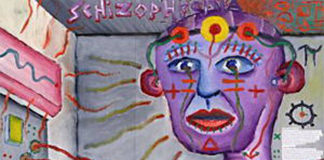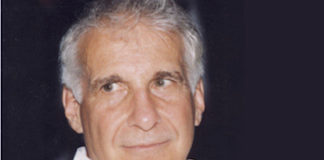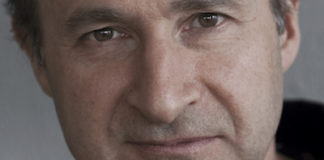Tag: biopsychiatry
Kick Big Pharma Out of the Classroom
School-based strategies such as the “talk to your doctor” campaign about any childhood problem have been extremely effective in helping the pharmaceutical industry to marginalize traditional child-rearing practices and replace them with advice from mental health “experts” and the use of dangerous drugs. These campaigns are reminiscent of now-illegal vintage tobacco ads in which doctors endorsed cigarette smoking.
How “Mental Health Awareness” Exploits Schoolchildren
Imagine being a parent at a meeting with educators to discuss Johnny's academics or behavior. Suddenly, your child’s teacher is telling you that he needs to see a doctor for an assessment of a suspected “mental disorder,” which usually leads to a prescription for medication. Warned of “the risks against failing to intervene,” you will likely acquiesce.
Hyping Biological Nature of Mental Illness Worsens Stigma
From The Baltimore Sun: "There are essentially two ways of looking at those conditions called 'mental illnesses.' We could regard them as more extreme...
Reexamining Schizophrenia as a Brain Disease
Schizophrenia has occupied, and continues to occupy, a position of great import in psychiatry, and it is frequently used to assert the supposed biological nature of the field. What evidence is there to suggest that what we call schizophrenia is a disease of the brain? Surprisingly, very little.
Tranquilizing Humanity into Oblivion: A Warning from Nathan S. Kline
Widely heralded as the father of American psychopharmacology, Kline insisted that his discoveries were adjunctive to psychotherapy, not replacements. The psychopharmacology of Kline's era recognized that medications are a blunt instrument.
Dr. Gordon Warme: The Relationship Between Culture and Psychiatric ‘Disorders’
This week we interview Dr Gordon Warme on the dominance of biological psychiatry and the relationship between culture and psychiatric ‘disorders’.
Peter Breggin, MD: The Conscience of Psychiatry
On this episode of the MIA Radio podcast, we present part one of an interview with Dr. Peter Breggin about his career, his views on psychiatry and recent developments with the Michelle Carter trial in which he testified as an expert medical witness.
Jim van Os: Rethinking Biological Psychiatry
Psychiatrist Jim van Os is Chairman of the Department of Psychiatry and Psychology at Maastricht University Medical Centre, Maastricht, The Netherlands. He challenges current diagnostic conceptions of schizophrenia and other mental disorders, and offers a vision for creating a new paradigm of mental health care.
Pratima Singh: Exploring Alternatives to Biological Psychiatry
Pratima Singh, who got her medical degree in India, works at the Maudsley NHS Hospital in London as an adult psychiatrist. She has a deep interest in alternatives to biological approaches to psychiatry and the use of psychotropic medications.
Will Hall: A Harm Reduction Approach to Mental Health and Wellbeing
Will is a mental health advocate, counsellor, writer, and teacher. Will advocates the recovery approach to mental illness and is recognised internationally as an innovator in the treatment and social response to psychosis.
Benzodiazepine Awareness: Raising Global Understanding
Benzodiazepine Awareness seeks to raise global awareness of iatrogenic benzodiazepine dependence, the dangers of its adverse effects and the associated withdrawal syndrome, which can last for years.
Chaya Grossberg: A Naturopathic Approach to Mental Health and Wellbeing
Chaya Grossberg shares her own experiences of the psychiatric system and how she now helps and supports those struggling to withdraw from their psychiatric medications.
Gary Sidley: Alternatives to Bio-Medical Psychiatry as Ways of Responding to...
Dr. Gary Sidley worked within NHS mental health services for 33 years in a variety of nursing, psychological and managerial roles. In the 1980s...
Peter Groot: A Novel, Practical Solution For Those Withdrawing From Psychiatric...
Doctor Peter Groot from the User Research Center of the Maastricht University talks about Tapering Strips, which help users who want to withdraw from their psychiatric drugs safely and in a controlled way.
David Healy: Making Medicine Safer for All
Doctor David Healy from Bangor University in Wales talks about prescribing practice, medicine safety and pharmaceutical regulation.
Lucy Johnstone: Why Underlying Causes of Emotional Distress are Often...
Doctor Lucy Johnstone talks about our reliance on the concept of diagnosis, how that doesn't fit well with psychological or emotional distress and how a predominantly biomedical view of tends to lead to a purely medication centred approach to mental healthcare.
Judy Meyer: Holistic Mental Health Practitioner and Mental Health Advocate
Judy Meyer is a holistic mental health practitioner, mental health advocate and founder of the Alternative Health Revolution.
Simone: Postnatal Depression, Fibromyalgia and Antidepressants
Simone talks about her experiences of postnatal depression, fibromyalgia and her treatment with antidepressants.
Daryl: Prescribed Antidepressant Drugs At 9 Years Old
Daryl, who was only 9 years old when he was taken into mental health services and medicated, talks about being made to take both antidepressant and antipsychotic drugs and he describes the lies told to him to justify treatment.
Your Psychiatrist Might be Wrong
From Pakistan Today: Psychiatry may lack scientific objectivity in comparison with other fields of medicine.
"The mind sciences – psychology or psychiatry – have always been...
When Homosexuality Came Out (of the DSM)
With a diagnosis of schizophrenia, if internalized, comes the erosion of personhood, lowered self-esteem, shattered dreams, and a sense of disenchantment. The psychiatrist Richard Warner has even suggested that those who reject the diagnosis of severe mental illness may have better outcomes as they retain the right to construct their own narrative of personhood and define what really matters for them. Despite public education campaigns (or perhaps because of them), the stigma of mental illness is as enduring as it was 50 years ago.
Science and Pseudoscience in Psychiatric Training: What Psychiatrists Don’t Learn and...
Evidence based care is supposed to drive up standards, ensure uniformity, establish best practice, guide clinicians and protect patients. This should be celebrated. Instead, evidence-based mental health is openly disparaged, and when psychiatrists don’t get the results they want, they ignore them, suppress them, or denounce them. These attitudes have repercussions on the training of psychiatrists.
From Blaming the Patient to Blaming the Brain
The idea of schizophrenogenic or refrigerators mothers was an embarrassing era for psychiatry, and so psychiatrists were only too happy to explore the brain and the genome to unlock the secrets of mental illness. Today, the rhetoric has shifted away from intrapsychical conflicts and traumatic ruptures, and instead aberrant neurochemistry or delinquent genes are held as the source of mental illness. Regardless, the message is clear: mental illness is beyond our control and requires psychiatric intervention. The moral authority the mental health industry claims over our mental life rests on this claim.
Where Do Messages of Hopelessness in Mental Health Care Come From?
The vast disconnect between prognosis (as predicted by mental health providers) and actual outcome (as reported by psychiatric survivors) forces us to ask the question: Why send messages of hopelessness when they are so often untrue?
We Are All Adam Lanza’s Mother (& other things we’re...
I do not understand how we can continue to avoid the conversation about psychiatric medications and their role in the violence that is affecting far too many of our children, whether Seung-Hui Cho, Eric Harris, Kip Kinkel, or Jeff Weise (all of whom were either taking or withdrawing from psychotropic medications) or the scores of children and adults they have killed and harmed. It is not clear what role medications played in the Newtown tragedy, though news reports are now suggesting there is one.




























